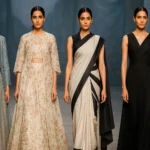India has a rich and diverse textile heritage that dates back to ancient times. Indian textiles have played a significant role in shaping the country’s cultural and economic identity. From handwoven silk sarees to intricate embroidery work, India’s textile industry has a fascinating journey that reflects its deep cultural roots.
The history of Indian textiles can be traced back to the Indus Valley Civilization (c. 3300-1300 BCE). Archaeological excavations have uncovered evidence of cotton cultivation and textile production in the region. The famous Harappan seals depict men and women wearing garments made of cotton, indicating the importance of textiles in their society.During the medieval period, Indian textiles gained global recognition for their exquisite craftsmanship and unique designs. The Mughal emperors were patrons of the arts and crafts, and they contributed significantly to the development of the textile industry. The Mughal court encouraged the production of luxury textiles like brocade, velvet, and silk, which were used to make expensive clothing and furnishings.
The Indian textile industry reached new heights during the British colonial period. The British recognized the value of Indian textiles and began to export them to Europe and other parts of the world. The demand for Indian textiles led to the establishment of textile mills in India, and the production of textiles on a large scale. However, the mills were owned by the British, and the profits from the industry were siphoned off to Britain.The Indian independence movement in the early 20th century brought about a renewed interest in India’s cultural heritage, including its textiles. The leaders of the independence movement encouraged the use of khadi, a hand-spun and handwoven cloth made from cotton, as a symbol of India’s self-sufficiency and independence. Mahatma Gandhi was a strong proponent of khadi, and he encouraged people to spin their own yarn and weave their own cloth.
Today, the Indian textile industry is a vibrant and dynamic sector that supports millions of people. India is one of the largest producers of cotton and silk in the world, and its textile exports are valued at billions of dollars. Indian textiles are renowned for their intricate designs, vibrant colours, and fine craftsmanship.One of the most remarkable aspects of Indian textiles is the variety of techniques and styles used to create them. India has a rich tradition of handloom weaving, which involves weaving cloth on a loom using hand-operated pedals. Handloom weaving is an intricate and time-consuming process, but it produces beautiful, high-quality textiles that are highly valued.
India is also famous for its embroidery work, which is done by hand using a needle and thread. Indian embroidery techniques include mirror work, zardozi, and chikankari, among others. These techniques are used to create stunning designs on sarees, shawls, and other garments.In recent years, there has been a growing interest in sustainable and eco-friendly textiles. India has a long tradition of using natural fibres like cotton, silk, and jute, which are biodegradable and environmentally friendly. Many Indian textile companies are now using organic cotton and other sustainable materials to produce their products.
In conclusion, Indian textiles have a fascinating journey that reflects the country’s deep cultural roots. From the Indus Valley Civilization to the present day, Indian textiles have played a significant role in shaping the country’s identity. The Indian textile industry is a vibrant and dynamic sector that supports millions of people and produces some of the world’s most beautiful and unique textiles. As we look to the future, it is important to remember and appreciate the rich history and traditions that have shaped this industry.
Want to become an expert in fashion design & styling? Well, worry not! HIITMS Academy in Hyderabad provides fashion design courses which can help you to learn everything about fashion. For more information visit HIITMS Academy at www.hiitms.com or contact 9391690690.







